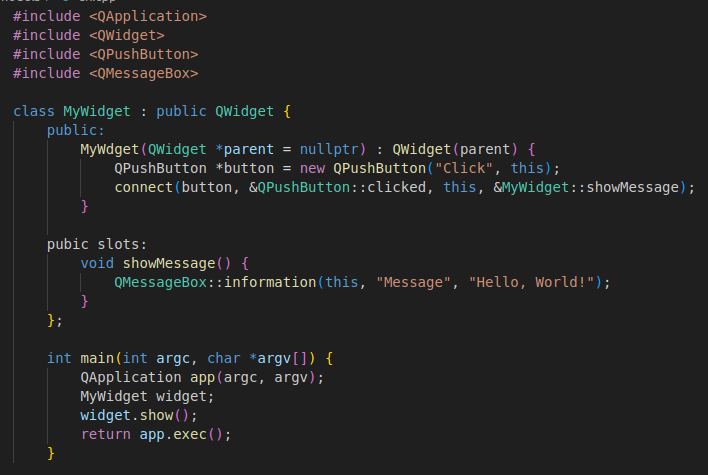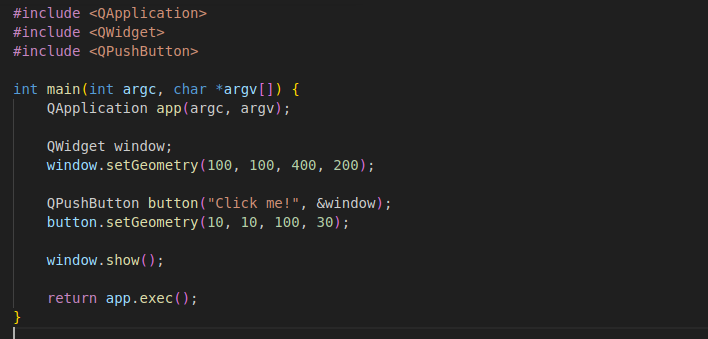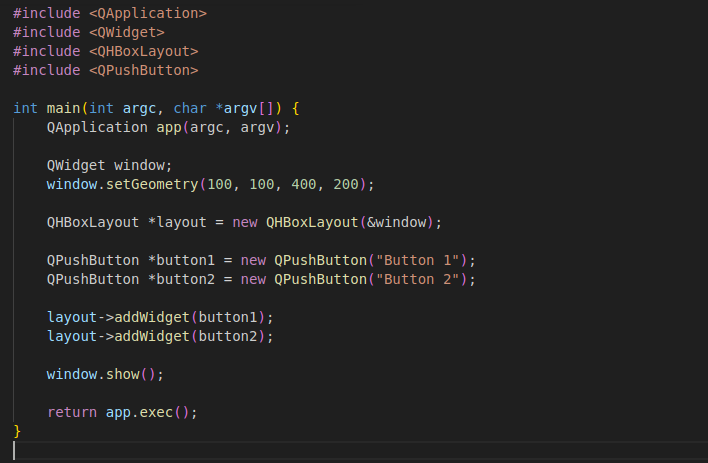

For Companies
For AI Labs
For Developers
Use Cases
Customer Stories
Get added peace of mind with Revelo’s risk-free trial. If you’re not satisfied with your hire within the first 14 days: You pay nothing, and we’ll find you a new candidate at no additional cost.










Valentina R.
Experience
6 years
AVAILABILITY
Full-time

Emilia F.
Experience
6 years
AVAILABILITY
Full-time

Juliana B.
Experience
7 years
AVAILABILITY
Full-time

Nelly G.
Experience
10 years
AVAILABILITY
Full-time

Paula C.
Experience
6 years
AVAILABILITY
Full-time
Rigorously vetted for technical and soft skills. Expertly hand-picked for your needs
Work synchronously with developers in the same or overlapping US time zones
Get shortlists within 3 days and hire in as fast as 2 weeks
Go further and reduce the overhead of sourcing, hiring, and talent management
Facebook API | Instagram API | YouTube API | Spotify API | Apple Music API | Google API | Jira REST API | GitHub API | SoundCloud API
Amazon Web Services (AWS) | Google Cloud Platform (GCP) | Linux | Docker | Heroku | Firebase | Digital Ocean | Oracle | Kubernetes | Dapr | Azure | AWS Lambda | Redux
MongoDB | PostgreSQL | MySQL | Redis | SQLite | MariaDB | Microsoft SQL Server
Qt developers are indispensable in developing versatile and efficient user interfaces and applications. With the growing need for applications that function seamlessly across various platforms, the demand for skilled Qt developers is rising. These developers are renowned for their ability to build robust applications that are adaptable and consistent across multiple operating systems—a crucial factor for businesses aiming to maintain a strong presence across diverse digital environments.
The Qt framework is celebrated for its ability to facilitate the development of both native and cross-platform applications, ensuring high performance and a user-friendly experience. This versatility is key to engaging a wider audience because it allows for the creation of applications that are both functional and aesthetically pleasing across different platforms. The implementation of Qt is instrumental for companies looking to enhance their digital infrastructure and establish a competitive edge in the market.
However, it’s often a challenge for companies who want to hire Qt developers, as the demand often surpasses the available talent pool. Companies must implement a meticulous hiring process to identify developers who are not only technically skilled in the Qt framework but also possess the creative and problem-solving abilities necessary to innovate and adapt in a rapidly evolving tech landscape.

Qt development involves using Qt to create programs and graphical user interfaces (GUIs) for various platforms and embedded systems, including Android, iOS, macOS, and Integrity.
This cross-platform capability is a significant advantage for companies aiming to reach a broader audience without the need for multiple development streams. Qt allows for the creation of a single codebase that companies deploy across multiple platforms for consistency in user experience and reduction of development time and costs. Additionally, Qt's advanced graphical capabilities enable developers to create visually appealing and highly interactive user interfaces, which are crucial for engaging users and enhancing their experience.
Qt comes with a unique software development language called Qt Modeling Language (QML), widely used to create user interface-focused apps. Developers also bind Qt with other languages, including Java, Python, Go, Ring, Crystal, and Rust.
Qt development gives companies a distinct edge by enabling rapid development and deployment of high-performance applications. The framework's robust set of tools and libraries supports a wide range of functionalities, from 2D and 3D graphics to networking and database management, making it an ideal choice for a variety of industries, including automotive, healthcare, and consumer electronics.
Developers use Qt to create a wide range of mobile and desktop apps and GUIs, including:

Qt’s multi-platform capability is particularly valuable in today's diverse digital ecosystem, where businesses must cater to users on various devices and operating systems. In game development, Qt's advanced graphical capabilities and support for 2D- and 3D rendering make it an excellent choice for creating engaging, high-performance games that are deployed across desktop and mobile platforms. The consistency in user experience across these platforms, achieved through Qt, is vital for maintaining player engagement and satisfaction. Beyond game and general application development, developers use Qt in machine learning and AI. The framework’s ability to handle complex GUIs makes it ideal for developing sophisticated tools for data visualization and analysis in machine learning applications.
Companies use Qt to build intuitive interfaces for machine learning models, facilitating easier interaction and interpretation of complex data. This is particularly beneficial in sectors like healthcare, finance, and automotive, where data-driven decision-making is paramount. The integration of machine learning capabilities with Qt's robust framework allows businesses to develop innovative applications that process and visualize data in real time, providing them with a significant edge in data analysis and decision-making processes.
Qt's scalability and flexibility in application development also mean that businesses rapidly adapt to changing market demands. Whether it's updating existing applications or developing new solutions, Qt's framework supports agile development processes, enabling companies to efficiently evolve their software offerings and quickly capitalize on new opportunities.
Qt’s adaptability in handling sophisticated algorithms and facilitating automation processes makes it an invaluable tool for businesses looking to innovate and optimize their operations. Companies that hire Qt developers unlock significant advantages, some of which include:

A Qt developer uses the Qt framework to create sophisticated, user-friendly applications that operate across multiple platforms. These experts translate complex project requirements into tangible, efficient software solutions. Their primary objective is to ensure that the end product meets user expectations for functionality, performance, and aesthetics. Achieving this requires a blend of coding skills and a keen understanding of user interface (UI) design and user experience (UX) principles.
Qt developer duties vary depending on the employer, industry, and experience level. Senior Qt developers usually have more responsibilities than their less experienced counterparts but most typically conduct the following duties:
Top candidates for Qt development positions should possess a blend of technical proficiencies, soft skills, and relevant educational qualifications to excel in this role. A deep understanding of the Qt framework is fundamental. This includes expertise in C++, the primary language used in Qt, as well as a strong grasp of Qt Creator, the integrated development environment (IDE) for Qt.
Proficiency in JavaScript is also valuable, particularly for developers working with QML for user interface design. Developers should be familiar with various operating systems, notably Linux and Windows, for cross-platform development. In cases where applications are targeted for mobile platforms, knowledge of iOS and Swift becomes essential.
In terms of database management, experience with SQL is advantageous, as it enables the handling of data-driven aspects of applications. For those working in environments that use Visual Studio, proficiency with this IDE from Microsoft enhances productivity and streamline development processes.
While specific educational requirements vary, most positions require a bachelor’s degree in computer science, software engineering, or a related field. Certifications in Qt, C++, or relevant technologies bolster a candidate's profile, though practical experience often holds more weight in this field.
Beyond hard skills, top Qt developers should exhibit strong problem-solving abilities, critical thinking, and a keen attention to detail. Effective communication skills are paramount, as developers frequently collaborate with cross-functional teams, including UI/UX designers and project managers. Adaptability to changing industry trends is another key soft skill. Other desirable soft skills include teamwork ability, time-management and project-management skills, and a commitment to professional development.
For developers to meet project deadlines and deliver high-quality work, they should possess the ability to work either independently or as part of a team, coupled with strong organizational and time-management skills. In a field where continuous learning is the norm, a candidate's commitment to personal and professional development often sets them apart.
In Qt/C++ development, C++ is the primary language due to its integral role in the framework and extensive support for features and libraries. Python, with bindings like PyQt and PySide, offers versatility in application range, while JavaScript, used alongside QML, is necessary for dynamic UI/UX design. Key libraries in Qt include Qt Multimedia for handling diverse multimedia content, Qt Network for efficient network programming, and Qt SQL for integrating database functionalities.
The choice of programming language plays a pivotal role in the efficiency and effectiveness of the Qt development process. Three popular languages that stand out in their integration and utility with the Qt framework include:
In Qt’s robust ecosystem, several libraries stand out for their specialized functionalities. They are integral for developers looking to enhance their applications with multimedia features, network connectivity, or database interactions. Key among these libraries are:

For a Qt developer, the right tools often simplify coding, debugging, and UI design for a more efficient development cycle. From IDEs that offer an all-in-one workspace to specialized utilities for memory management and debugging, each tool plays a unique role in the development process. These tools not only aid in writing and optimizing code but also provide critical support in diagnosing and resolving issues.
Key tools in a Qt developer's arsenal include:

Qt is a versatile framework that is used for both front-end and back-end development, as well as for creating standalone applications. Its capabilities encompass:
Therefore, Qt's scope goes beyond traditional front-end or back-end categorizations, making it a comprehensive tool for building complete applications.
In the US, mid-level Qt developers with four to six years of experience typically earn $95,000 to $155,000 annually. Salaries may vary based on location, experience, and certifications, and often include further compensation such as bonuses, stock options, or equity shares. A Qt full-stack developer would command a higher salary than a Qt developer who’s primarily front or back-end.
Meanwhile, Latin American developers possess similar skills but usually receive 30% to 50% lower compensation due to the lower cost of living. Revelo offers access to a pool of highly vetted Latin American tech talent, providing cost-effective hiring solutions while maintaining high quality.
Featured Tool: Tech Team Budget Calculator
To find the best Qt candidates, focus on assessing their experience in Qt development, their ability to work within your specific industry, and their proficiency in related technologies like web development, TypeScript, Node.js, and AWS if necessary. Engaging with Qt developer communities, conferences, and platforms also help hiring teams to identify top talent.
Look for programmers who have a track record of successfully delivering Qt projects and collaborating effectively with multidisciplinary teams. Consider their adaptability to your company's development environment and methodologies, such as Agile or Waterfall. Don't forget to evaluate their problem-solving skills and willingness to stay updated with the latest advancements in Qt and related technologies.
Qt developers are crucial for startups and established businesses aiming to create powerful, cross-platform applications. Their ability to optimize user interfaces and deliver responsive software is a game-changer.
Revelo simplifies sourcing and hiring Qt developers with a rigorous vetting process and comprehensive HR support to help you quickly find top talent. We help with payroll, benefits, taxes, and compliance, providing a risk-free solution.
Hire Qt developers with Revelo to enhance your team's capabilities.
Build your remote software engineering team in any tech stack. Our talent pool of senior software developers are pre-screened across 100+ skills.
Looking for work? Apply here
Yes, if for any reason you find the developer you hire isn't a good fit within the first 14 days - you pay nothing or we can find you a replacement at no additional cost.
Hiring a full-time developer through Revelo is a simple 3-step process. First, you tell us your hiring needs. Second, we match you to the best developers within 3 days. Third, you interview the candidates you like and hire the one you like most.